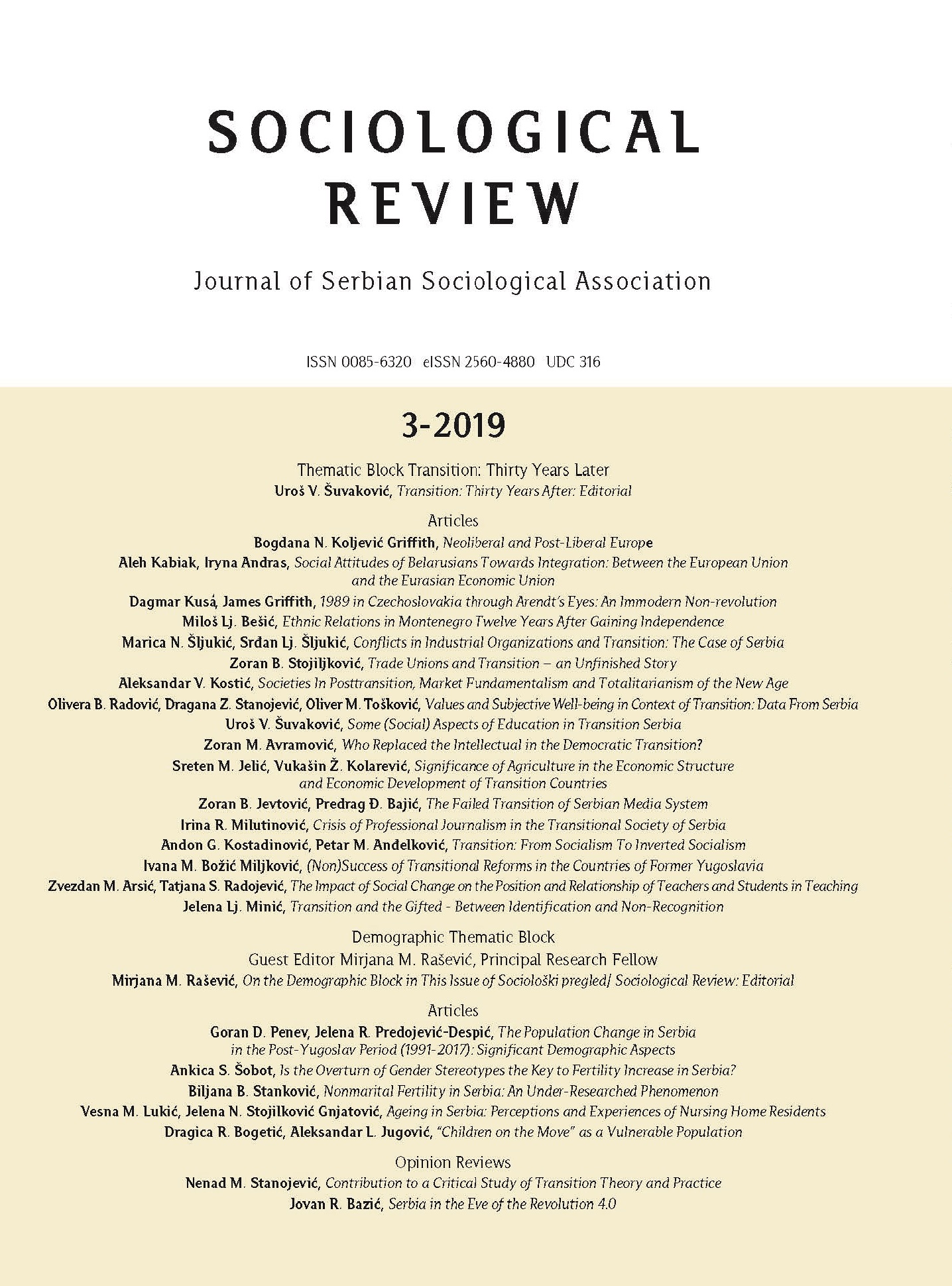Transition: From Socialism To Inverted Socialism
Transition: From Socialism To Inverted Socialism
Author(s): Andon G. Kostadinović, Petar M. AnđelkovićSubject(s): Social Sciences, Sociology, Globalization
Published by: Српско социолошко друштво
Keywords: Socialism;capitalism;transition;inverted socialism
Summary/Abstract: There are principles in the world by which everything happens, by which the world works. This applies to both natural and social phenomena. However, it happens that these principles are inverted into something completely different. It is also often the case, in order to hide the true essence, that new names for phenomena or processes that obscure things and hide the right intentions are invented. The best example of how this works in practice can be seen in the examples of totalitarianism and democracy. The principle of totalitarianism is based on an authoritarian system of government, unlimited power of the leader, aggressive expansionism and control of the state. In its original meaning, democracy (the rule of the people - the majority) is the opposite of totalitarianism. However, do we have the true rule of the people today, or is there just a new form of totalitarianism behind that phrase? Every period, including this one today, imposes some general ideas that preoccupy people and nations. One such example is the mundialist idea of organizing a “world without borders” as a whole into which individual peoples and states are immersed. A process called transition has been imposed as a by-product of globalization and a mandatory pattern for former socialist countries. Therefore, Wallerstein is right in saying that the whole world is in a situation of “a kind of global transition”. A large number of papers have been written in an effort to explain these processes. One of the discourses that can explain the “global transition” is the principle of inverted socialism. Namely, if socialism is based on the idea of social justice, that is, the distribution of social wealth to as many members of society as possible, the inverted socialism operates on the principle of profit privatization, and the socialization of losses at all levels. Globally, the rich (2%) are becoming richer and the majority of the population is becoming poorer. As a result of such a process, instead of a harmonious future, as Fukuyama predicted, there is the death of the welfare state on the one hand, and the socialization of losses on the other (the best example is the world financial crisis and bank rehabilitation by the states – of course at the expense of the people). Therefore, both globally and locally, it is time for a new Marx and a new true rather than inverted socialism.
Journal: Социолошки преглед
- Issue Year: 53/2019
- Issue No: 3
- Page Range: 1071-1101
- Page Count: 31
- Language: English, Serbian

